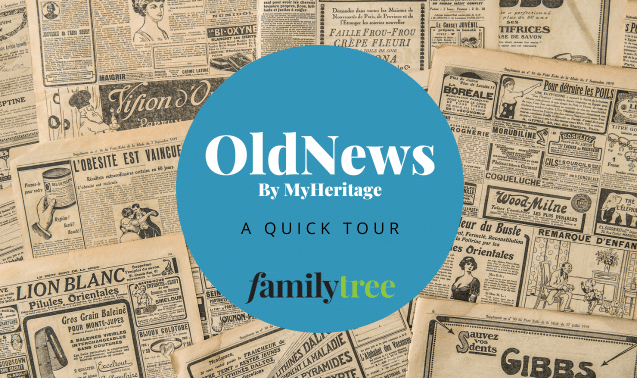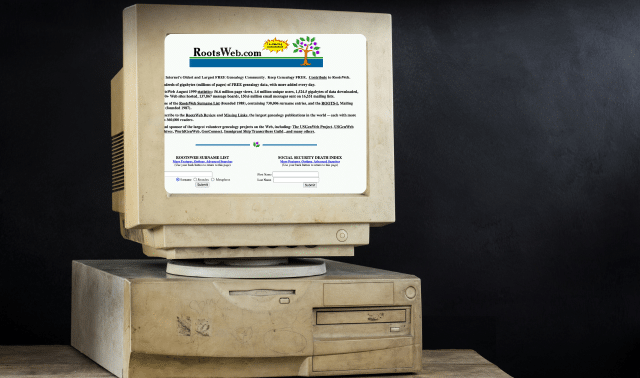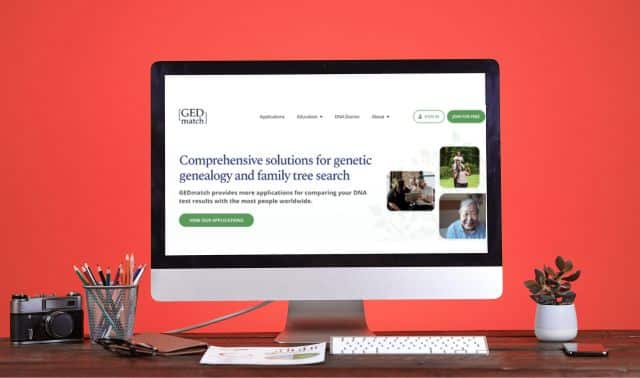Sign up for the Family Tree Newsletter! Plus, you’ll receive our 10 Essential Genealogy Research Forms PDF as a special thank you.
Get Your Free Genealogy Forms
"*" indicates required fields
00:00:02
The Atlas of Historical County Boundaries can help you figure out what US county your ancestors were in at any given time. Hi, I’m Sunny Morton here with a quick tour of this free resource.
00:00:15
In the United States, many historical records are kept at the county level. This could be land records, probate records, court, vital, divorce, guardianships, and many other kinds of records like this 1829 deed showing the sale of land by my ancestors in Washington County, Ohio.
00:00:34
However, county boundaries were a moving target in the 1700s, 1800s and even, in some places, into the 1900s.
00:00:43
As you can see from this Ohio map, comparing 1803 to 1827, the trend, especially in Western territories and states that were still being formed, was the gradual division of larger counties into smaller ones over time.
00:00:59
So even if you find your ancestors in one county’s records and they never moved, it’s still possible the county boundaries moved around them and they were in different counties in earlier or later years.
00:01:13
You’ll want to know this when you go looking for records, so you’re looking in the right place (or places, as the case may be).
00:01:22
That’s why you would use the Atlas of Historical County Boundaries, a free online tool created by Chicago’s Newberry Library.
00:01:30
You’ll find it at digital.newberry.org/AHCB. Here on the home page, you can go a few different directions, including learning about how the creators compiled this massive historical mapping project.
00:01:46
But I’m going to guess that, many times, you’ll just want to click on the state you’re interested in.
00:01:53
This will give you several choices for viewing the county boundary data. We’re going to come back to these in a minute.
00:02:00
First, let’s go to the interactive map and use it to answer a question.
00:02:06
I’ll scroll down a little bit and give you a quick tour here. Here on the map you can click and drag to move it around.
00:02:14
You can hover to see details about particular counties.
00:02:20
You can zoom in or out as you like.
00:02:28
You can even go full screen if you want to look at it close up or print.
00:02:33
So to the left is an important tool, the date selector. These show the dates for which known boundary changes occurred somewhere in the state.
00:02:43
Some of these boundary changes could have been very subtle and others quite dramatic. Ohio boundary changes begin in 1803 with statehood, as shown here, and then go clear down until the last documented one in 1888. Sometimes. as you can see, there was more than one change in one year.
00:03:02
I want to look at the Washington County boundaries between 1801 in 1829, during the time that my ancestors lived there. So I need to find the nearest dates. 1803 is the earliest time shown, so that’s the one that I can choose. And then, in 1827, the most recent change available before 1829, I’ll click on this 1827 change and find Washington County.
00:03:37
Then I’ll go back to 1803 and click on Washington County, and I can see that, yes indeed, that county shrunk tremendously during that time period.
00:03:50
Now it’s time for me to zoom in and figure out where exactly my family was.
00:03:56
I’ve got records of them paying taxes in the same neighborhood as that deed in Barlow Township, Washington County, at least as early as 1810. That’s due west of Marietta.
00:04:07
Was that area part of Washington County the entire time they lived there? I can zoom in on this interactive map and I can see that yes, the area just due west of Marietta where Barlow Township is was in Washington County, clear back to 1803.
00:04:32
But what if this rough look at a map without a lot of detail isn’t quite good enough?
00:04:37
This is when you’re going to go back to the detail page.
00:04:42
And you can refer to the county-by-county summary, list of boundary changes.
00:04:47
It’s indexed right here so that you can easily jump to the county you want.
00:04:56
But you can also click directly from that page to this long list of all of the counties and the changes that were made.
00:05:03
This way, if I need a better understanding of what changes were made in Washington County during a particular time period, I can read them and I can even reference the laws whereby they were created.
00:05:16
Back on the Ohio summary page, you can even go down and view commentary and sources that pertain to each of these counties if your interest goes that deep.
00:05:27
Now you can use what you’ve learned about the Atlas of Historical County Boundaries to explore your own questions about what county or counties your relatives’ records might be in, and when.
A version of this article appeared in the January/February 2022 issue of Family Tree Magazine.







